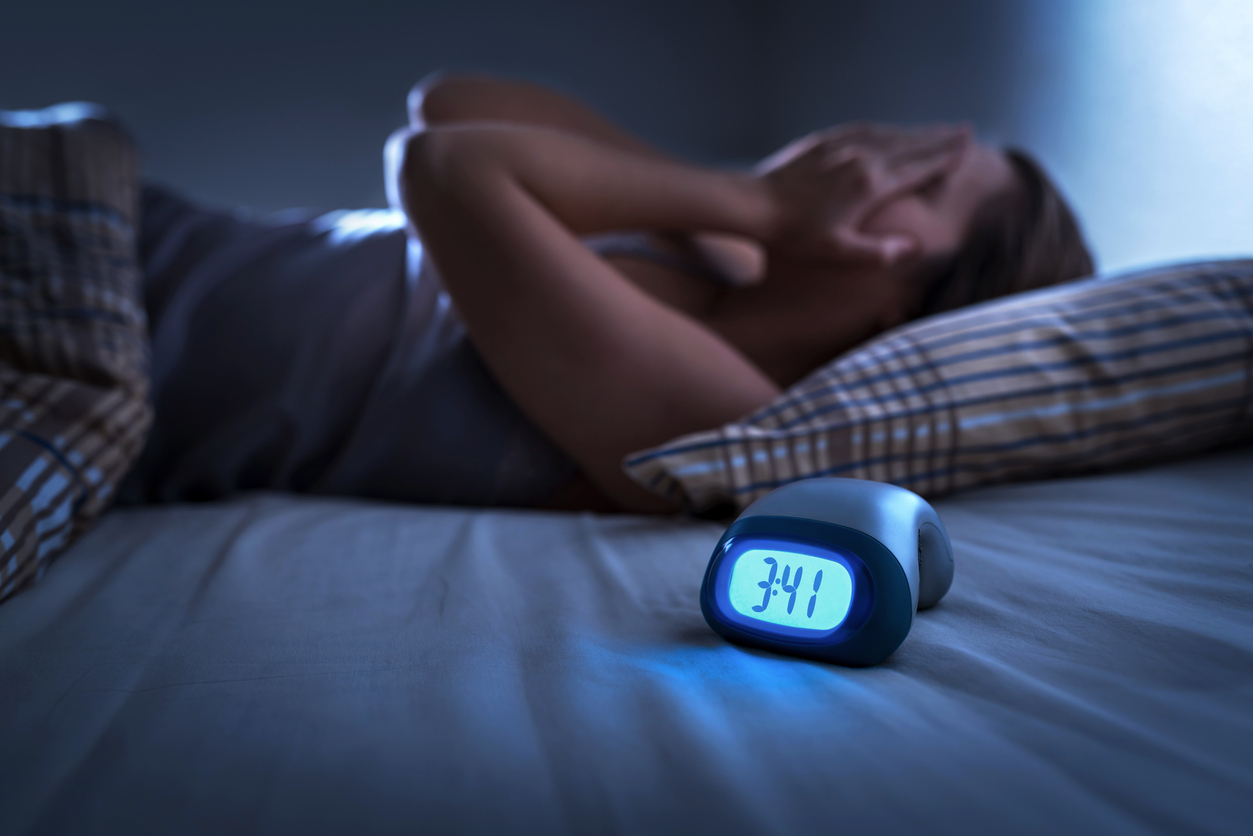
Have you ever woken during the night and felt that familiar surge of anxiety preventing you from falling back asleep? Or felt anxious at the thought of going to bed, knowing that you’re likely to lie awake for hours before sleep finally catches you? These are signs that your stress hormones may be impacting your circadian rhythm.
In Australia, recent statistics suggest that almost 60% of people experience sleeplessness and waking too early 3-4 times per week. Further, nearly half (48%) of all Australian adults report at least two sleep-related problems (AIHW, 2021). Many attribute these difficulties to feeling anxious and stressed.
Stress and sleep have a reciprocal relationship. High levels of stress (cortisol) can make it difficult to get to sleep and stay asleep, while a lack of sleep can lead to maladaptive changes to the stress response. In a normal sleep wake cycle, our cortisol levels decrease at night in response to cues such as lower light, lower body temperature etc., and our sleep hormones (melatonin) naturally increase. When we experience stress, our cortisol levels remain high. In some cases, this can cause sleep disorders such as insomnia.
Many of us will experience some form of short-term sleep disturbance at some point in our lives in response to the stressors and demands of modern life. Parents of newborn babies will be quite familiar with the impact of sleep deprivation. Preparing for a major exam, job interview or other major milestone can also trigger poor sleep patterns.
However, when these situations and conditions are ongoing, surpassing an individual’s ability to cope and causing prolonged physiological and psychological tension, the result can be chronic stress. Chronic stress can cause significant dysregulation of the sleep wake cycle. It reduces REM sleep and deep sleep; both of which are important for physical and mental health. Stress can also alter the patterns and emotional content of dreams.
During these times it can be easy to fall into unhealthy habits in the hope of securing a good night’s sleep. The use of alcohol or other drugs are extremely common. While they may provide a short term solution, the overuse of substances can have a more harmful effect in the longer term. For example, while alcohol is a central nervous system depressant and can induce a state of relaxation, it suppresses REM sleep, creating an imbalance between slow-wave and REM sleep. This means sleep is not restorative. This can further increase stress levels, causing significant physical and/or mental health problems.
So, what are some healthy ways we can reduce our stress levels to get a good night’s sleep? The first step is to be aware of how stress is impacting you and your sleep. The next step is to begin setting goals that prioritise overall wellbeing, especially sleep.
Here are some tips to help you mitigate the impact of stress on sleep.
- Establish a Consistent Sleep Routine
- Avoid napping after 3pm
- Reserve the bedroom for sleep and sex only.
- Refrain from difficult conversations right before bedtime
- Regularly practice Relaxation Techniques
- Create a Comfortable Sleep Environment
- Limit Caffeine and Alcohol Intake, especially 2-3 hours before bed.
- Prioritize Physical Activity
And always remember that if you continue to have consistent problems with either stress or sleep, visit your GP for further medical assessment and advice. While there are certain medications that can help in the short term, there are also other successful treatments such as cognitive-behavioural therapy which are evidence based and highly effective.